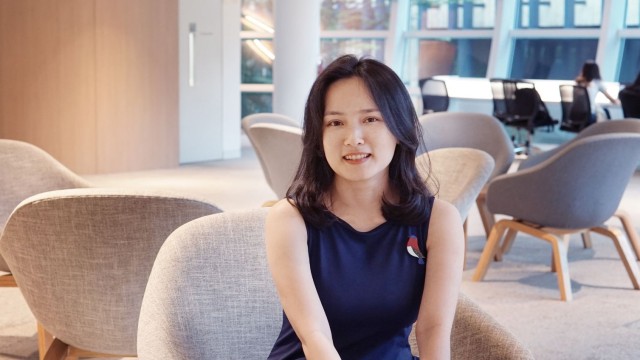Why I Enjoy Working at the SMU Libraries as a Senior Librarian in Research & Data
SMU Libraries provide crucial support to students and faculty in navigating research and data challenges. Bella Ratmelia, Senior Librarian in the Research & Data Services team, shares how she helps the SMU community with resources, workshops, and personalised assistance. From AI for Research Week to tackling common misconceptions about research, Bella emphasises the importance of critical thinking, creative problem-solving, and ongoing learning in today’s data-driven world.
Did you know that librarians at SMU Libraries can help you navigate the complexities of data analysis for your research?
The Li Ka Shing Library and Kwa Geok Choo Law Library, collectively forming the SMU Libraries, are not only places for students to mug for their exams, but also serve as invaluable hubs for your research needs.
In this second instalment of the “Why I Enjoy Working at the SMU Libraries” series, we chat with Bella Ratmelia, Senior Librarian at the Libraries’ Research & Data Services team, who shares more on how the library helps the SMU community with their research.
What drew you to work in the research and data services team at SMU Libraries?
I was drawn to SMU’s well-known teaching approach and focus on business and social sciences. The University felt like the right fit for me!
SMU Libraries' vision also resonates deeply with me. Our vision of advancing research, education, and problem-solving while cultivating lifelong learning represents the kind of work I wish to do.
How does your work help students and faculty maximise their research potential?
I help faculty and students navigate SMU Libraries’ resources and tools. Part of my job entails connecting researchers with what they need, from specialised databases, analytical software, to unique collections.
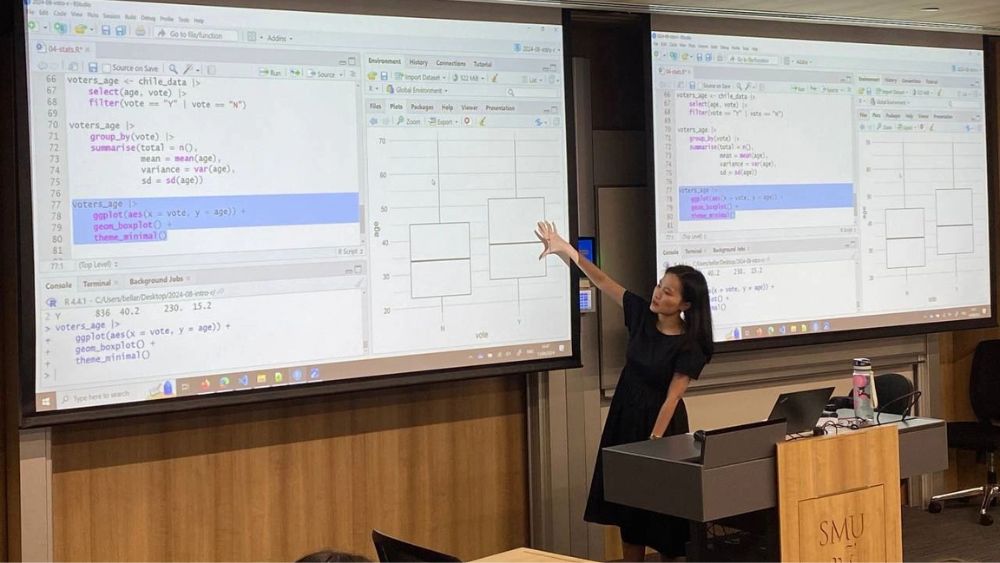
I also run hands-on workshops to help students and faculty build research skills. This includes teaching coding for data analysis in R and Python, and training them on survey platforms like Qualtrics. These technical workshops are designed to equip researchers with skills needed for their projects.
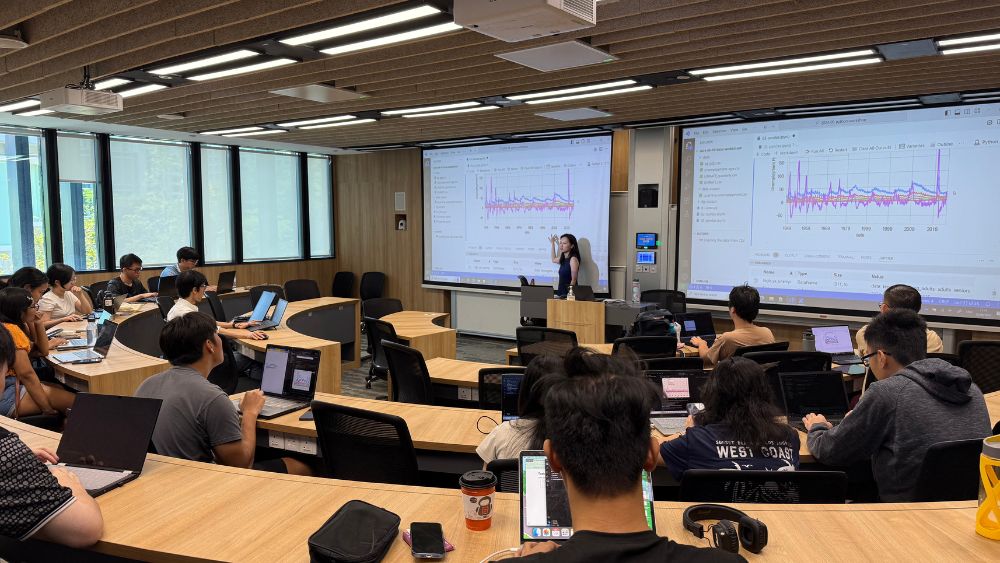
Another important part of my role involves understanding the researchers’ workflows and challenges. These insights help us improve our resources and services to better meet their needs, amidst a changing research landscape.
Can you describe a memorable project or research initiative you've been involved with at SMU?
One of my most memorable projects was AI for Research week held in May 2024. I had the opportunity to take on two roles—leading the organising team, and running a workshop on audio transcription and translation using Whisper AI.
More specifically, I experimented with the Whisper model and other transcription models available on Hugging Face, a popular platform for machine learning models. I tested how well these models handled audio with a Singlish accent. Although I had only conducted brief experiments, sharing the learning process with others was a valuable experience.
I realised the best teaching moments come from the journey of discovering solutions. It's one thing to talk about AI tools, but testing them and seeing their impact on research tasks is where things get really interesting.
How do you see the role of data evolving in higher education and research?
Data is here to stay; in fact it's becoming more central to everything we do in higher education and research.
AI is making skills like coding and data analysis more accessible, but the real key is knowing how to analyse data effectively. This involves understanding what the numbers mean and why they matter.
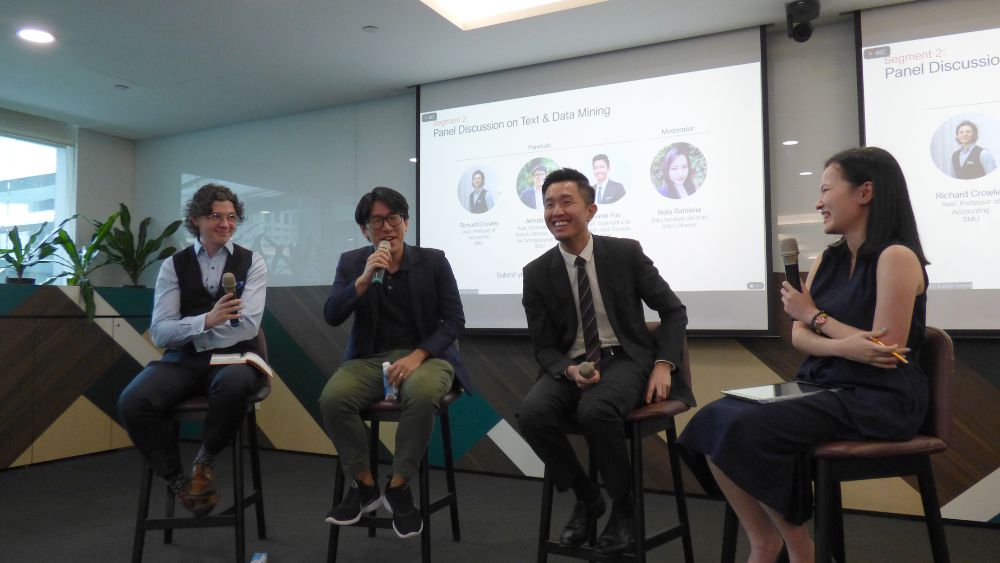
The biggest challenge ahead is connecting these insights to the real world—both in academia and beyond. While AI excels at processing existing knowledge, it’s still up to us to generate new ideas and perspectives.
In higher education, I believe we need to equip people not just with the skills to work with data, but with the ability to interpret it meaningfully and think creatively. AI can help, but we need to be the ones asking the right questions and making sense of the answers.
Q:
What are some common misconceptions students or faculty have about research and data?
A:
A common misconception that I often encounter (particularly among students) is the idea that they have to figure everything out on their own. Many hesitate to ask for help because they think their research isn’t “ready” or their data is “too messy”.
Whether you’re a student or faculty member, we’re here to support researchers at every stage—from literature searching and using analysis tools, to navigating the publishing process and boosting research impact.
How do you stay updated with the latest trends and technologies in research and data management?
I stay connected by engaging with librarians and experts worldwide, subscribing to mailing lists, and keeping up with industry discussions on social media. Inspired by Mark Granovetter’s “The Strength of Weak Ties”, I aim to step outside the librarian bubbles, as new insights often come from outside our immediate circles.
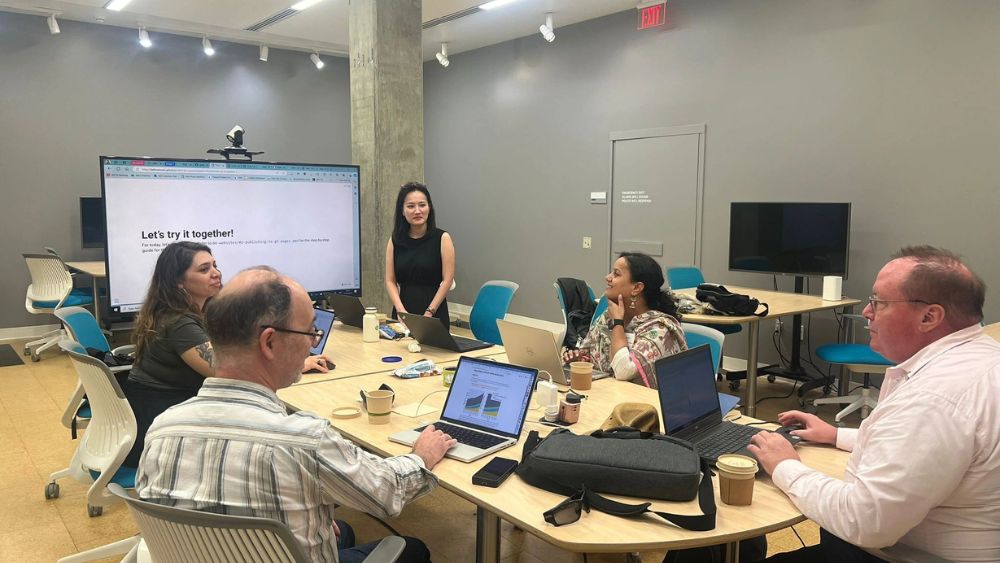
This approach suits my social learning style—where I learn best by discussing, debating, and clarifying ideas with others, whether face-to-face or through online platforms. I’ve also built valuable "learning buddy" relationships with colleagues, by collaborating on various topics in research and data services, which have been incredibly valuable for my growth.
Do you have any personal passions or hobbies that have influenced the way you approach research and/or data management? How do they inspire you in your work?
I'm a stereotypical librarian who enjoys reading and playing video games! I believe these hobbies have shaped my work in research and data.
Gaming is all about solving puzzles, making decisions, and learning from mistakes—much like research. There is a lot of trial-and-error, especially when launching new services. Things rarely work perfectly the first time around, so you need to plan, adapt, and learn from those 'oops' moments (with backup plans in place, of course).
All those hours spent gaming and reading have helped me become a better problem-solver, stay determined through challenges, and working with others to reach the goals of the research and data services team at SMU Libraries.
Need expert guidance in your research? Learn more about how the Research and Data specialists at the SMU Libraries can help you refine your thesis or explore data-driven insights here.


